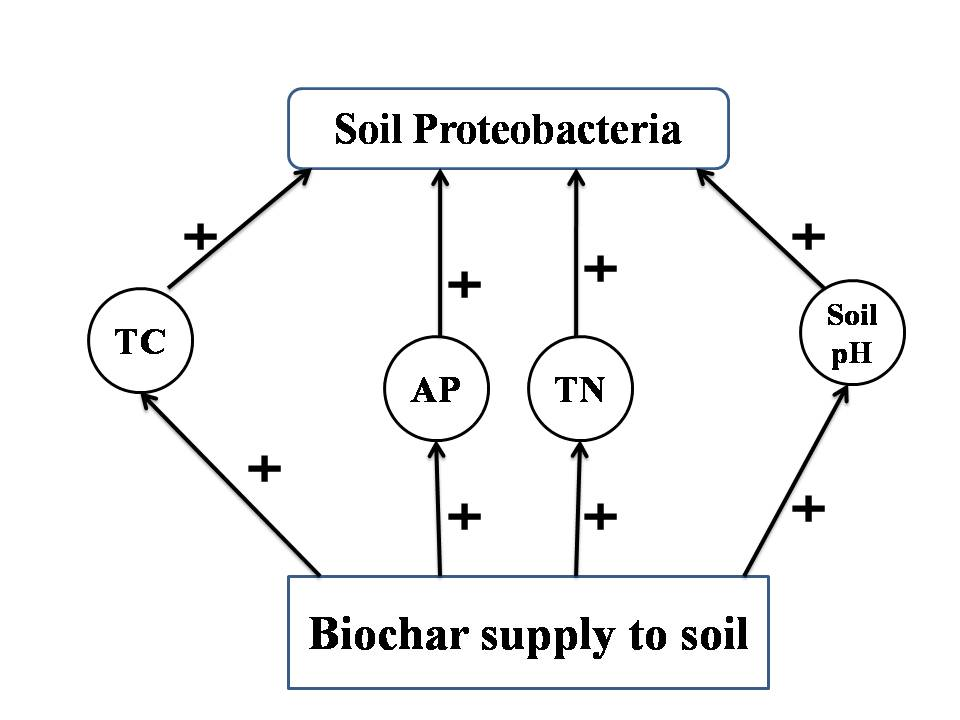Response of Soil Proteobacteria to Biochar Amendment in Sustainable Agriculture- A mini review
DOI:
https://doi.org/10.56946/jspae.v1i2.56Keywords:
Biochar, soil proteobacteria , soil properties, different rhizospheres , relationshipsAbstract
In recent years, biochar application to soil has become more popularized due to its potential roles on soil fertility, plant growth, and development. In this review, we discussed the impact of biochar on the relative abundance of soil proteobacteria and its relationship with soil physiochemical properties under different rhizospheres. It was observed that biochar applied to different soil improved proteobacteria, and its lowest and highest relative abundance was ranged from 30-80%, respectively. A positive relationship of soil proteobacteria with soil pH, total nitrogen, available phosphorous, available potassium and total carbon were observed in several studies. Both the relative abundance of proteobacteria and its relationship with soil properties depend on biochar type, soil type, and fertilizers applied to the soil. Most of the ammonia-oxidizing bacteria including nitrogen-fixing bacteria, ammonia-oxidizing bacteria, cellulose-decomposing bacteria, nitrifying bacteria and denitrifying bacteria belong to proteobacteria, which plays a significant role in nitrogen recycling that is beneficial for the plant growth, yield and fruits/seeds quality. Furthermore, a positive relationship between soil proteobacteria and plant yield was also highlighted. In this context, the use of biochar play a potential role to improve the relative abundance of proteobacteria in sustainable agriculture. We highlighted future research guidelines that might benefit the sustainable agricultural system. Moreover, further studies are needed to explore the potential role of biochar application on Proteobaceria families such as Alphaproteobacteria, Betaproteobacteria, Gammaproteobacteria, Deltaproteobacteria, and Epsilonproteobacteria.

Downloads
Published
How to Cite
Issue
Section
License

This work is licensed under a Creative Commons Attribution-NonCommercial-NoDerivatives 4.0 International License.
